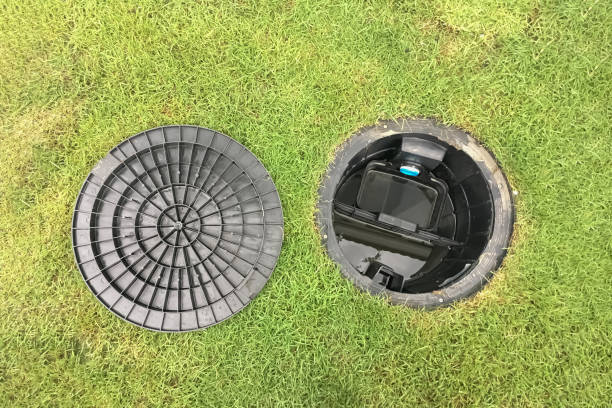Having a functioning septic system is vital to your home’s plumbing, but the financial burden of having one can sometimes feel overwhelming. From regular pumping and upkeep to emergency repairs, it can take time to know where to start when deciding about your septic system. Fortunately, some simple tips and tricks can help you save money on even the most complex parts of maintaining your septic system. In this blog post, we’re taking a look at four ways that you can save money on your septic tank without compromising its performance or quality.
-
watch what you flush down into the septic tank
Being mindful of what you flush down the drain is rule number one for avoiding costly backups and clogs.
It’s crucial to avoid flushing anything besides the three P’s: pee, poo, and toilet paper. Items like feminine products, hairballs, paper towels, napkins, wipes, and chemicals should never find their way into your septic tank.
Not only can these items physically clog your system, but the chemical compounds in paint thinners, dyes, etc., can disrupt the natural balance of bacteria responsible for breaking down solids.
When in doubt, it’s better to err on caution and dispose of questionable items elsewhere.
Remember, your septic tank can only digest certain materials effectively, so don’t overwhelm it. Anything that contains indigestible plastics, such as baby wipes, sanitary products, baby buds, or kitchen towels, risks blocking your soakaway.
Additionally, avoid pouring cooking oil, grease, fat, and cleaners down the drain. These substances can solidify within the septic tank, leading to troublesome clogs and potentially costly repairs.
-
Stick to a routine maintenance schedule
Sticking to a routine maintenance schedule is vital for saving money and ensuring the longevity of your septic system.
If your tank requires pumping every 2-4 years, adhere to this schedule. Neglecting routine maintenance can lead to many problems, which is why certain areas have mandated pumping ordinances.
By following your maintenance schedule, you can detect any hidden issues with your tank, baffles, or outlet lines.
Moreover, routine maintenance prevents unexpected charges for “heavy solids” during your clean-out. When a tank has been neglected for an extended period, sludge can accumulate, thereby making the removal of heavy solids more labor-intensive and expensive. When you maintain a consistent maintenance schedule, you can avoid these additional costs.
Postponing service to save money can backfire, resulting in issues down the road and potential heavy solids charges during your next service. Moreso, neglected tanks hinder waste processing, often leading to increased labor time and disposal fees.
Just remember that regular septic system inspections are crucial for catching problems early on and avoiding expensive repairs in the future. Trained septic inspectors can evaluate the condition of your tank and other components.
In that process, they can easily identify any signs of damage or wear.
-
Don’t flood the system with water
Efficient water usage is crucial for maintaining a healthy septic system and avoiding unnecessary expenses.
Firstly, it’s important not to flood your septic system. The system is designed to handle a specific water flow rate based on factors like the size of your house.
If an excessive amount of water enters the septic tank at once, it won’t have enough time to separate the liquids from the solids. This can lead to major issues, including water backing up into your home or yard.
By conserving water and using it judiciously, you can reduce the frequency of septic system servicing.
To achieve a balanced water usage pattern, consider the peak water usage in your daily routines. For example, running multiple water-intensive activities simultaneously, such as taking a shower while running the washing machine or dishwasher, can overwhelm your septic system.
The constant streams of water can strain your pipes and disrupt the tank’s equilibrium, potentially leading to undigested fluid flowing into the soakaway. Try to use water for one task at a time and maintain a balanced flow to keep your septic system functioning optimally.
-
Dig open buried manhole covers before your scheduled service
To avoid unnecessary digging charges and labor fees during your scheduled septic system service, it’s essential to locate and dig open buried manhole covers beforehand.
Digging out these covers can be time-consuming for the service crew, especially if your septic system is buried more than 6 inches below ground level. By taking the initiative to uncover the lids before their arrival, you can save both time and money.
If you know the location of your septic tank lid, ensure that it is at ground level or already dug open for easy access. In cases where digging is required, additional labor charges may apply based on the depth of the access point.
To avoid such expenses in the future, consider having a septic riser or extension installed. These inexpensive modifications bring the manhole cover to ground level, eliminating the need for extensive digging during subsequent cleanouts.
You can inquire about installing a riser or extension when scheduling your service.
Conclusion
Don’t wait until costly problems arise. Contact us at Vi Reel to schedule your septic system service today. Our dedication to quality service and customer satisfaction will ensure your septic system remains in optimal condition while saving you money.


